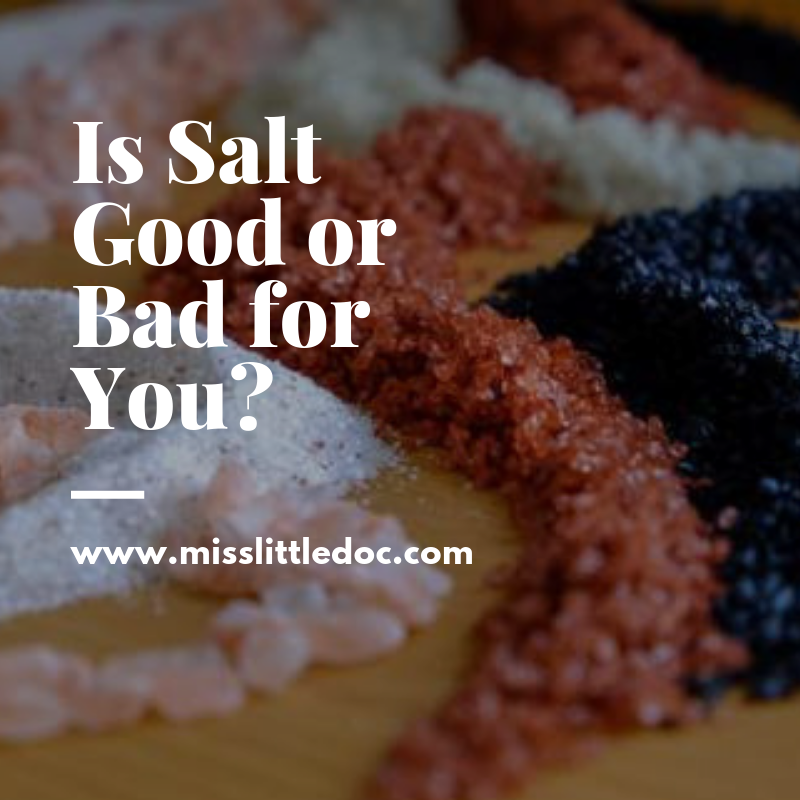Is Salt Good or Bad for You?
We’ve all been told salt causes high blood pressure, cardiac disease and heart problems. But is that really the truth?
In 1972, the National Institutes of Health introduced the National High Blood Pressure Education Program to help prevent hypertension. There were two studies they based this program off of.
One, they noticed certain groups of people who ate little salt had no hypertension. (But they also didn’t eat processed food and sugar either.) Two, was based on an animal lab test. Rats were fed salt (60 times the normal amount of salt a human would consume!!!) and saw an increase in high blood pressure.
What if the opposite were true?
In one European study in 2011, scientists followed 3,681 subjects from Belgium, Poland, Netherlands, Italy and Czechoslovakia over eight years. They discovered a lower sodium diet actually led to increased cardiovascular-related deaths.
Another salt-related study a few years before had subjects from Canada, Ireland, Germany, England, the Philippines and even the USA. They followed them between November 2001 – March 2008. The results were the same. A lower sodium diet meant increased congestive heart failure (CHF).
Salt, in its most basic form, is sodium and chloride. Sodium is an essential mineral. Our body doesn’t know how to manufacture sodium by itself. Sodium keeps the fluid levels in our bodies balanced. From the water in our cells, to our blood pressure to our lymph nodes.
Without salt, our heart cannot contract normally, which would damage our valves. Chloride, on the other hand, keeps our acid-base balanced. It helps stomach acid, raises our pH levels and aids in absorbing potassium.
Low Salt Diet
The negative health effects include:
- Elevated LDL cholesterol and triglycerides: Salt restriction has been linked to elevated LDL (bad) cholesterol and triglycerides.
- Heart disease: Several studies report that less than 3,000 mg of sodium per day is linked to an increased risk of dying from heart disease.
- Heart failure: One analysis found that restricting salt intake increased the risk of dying for people with heart failure. The effect was staggering, with a 160% higher risk of death in individuals who reduced their salt intake.
- Insulin resistance: Some studies have reported that a low-salt diet may increase insulin resistance.
- Type 2 diabetes: One study found that in type 2 diabetes patients, less sodium was associated with an increased risk of death.

What is the best kind of salt?
- Pink Himalayan rock salt is rich in minerals, containing all 84 essential trace elements required by your body. Pink salt can assist in many bodily functions, such as reducing muscle cramps, promoting blood sugar health and promoting healthy pH in your cells.
- Regular Natural sea salts contain 80+ trace minerals including potassium and it is only 92% sodium chloride. It is free of aluminum and other toxic substances that table salt is exposed to during the refining process. Sea salt is known for its coarse, crunchy texture.
- Celtic sea salt is an unrefined, unprocessed and sourced from clean coastal waters along the Guérande Region of Brittany, France. Containing unprocessed and naturally forming minerals, this grey Sea Salt is harvested by traditional Celtic methods using a paludier, a craftsman salt harvester.
- Red salt is a Hawaiian salt, red salt gets its color from the volcanic Hawaiian clay called alaea. As water evaporates, this salt gets trapped in tidal pools, where it mixes with the alaea. It is estimated to contain the highest concentration of essential trace minerals of any salt and is especially iron rich. If you have a tendency to be low in iron, this salt may be a good addition to your balanced diet.
There is a huge difference between table salt and unrefined salt. Table salt has been broken down with heat and then put back together, minus any minerals. This is so the salt company can sell it to chemical companies for the production of plastic and other chemicals. It’s 99.7% NaCl in that form. Then, they add some anti-caking agents and send it to your grocery store shelf.
Chiropractic
Chiropractic looks at the whole body to figure out what is going on. Chiropractic gets the rap that we adjust for pain relief. But, in reality we do sooooooo much more than adjusting. We can look at diet, we can give strengthening exercises, we can suggest natural products for living a cleaner lifestyle, and we can treat all kinds of conditions and all ages!
If you have any questions on a lifestyle change you are looking at, a problem you have “fixed” or just want to start being a healthier you and get adjusted for wellness, give us or a chiropractor near you a call! My favorite patients are ones that understand the quality of life benefit chiropractic can give to you. Chiropractic adds life to your years and years to your life.
~Dr. Lacey~
Carder Chiropractic Clinic, INC.
El Reno, OK 73036



